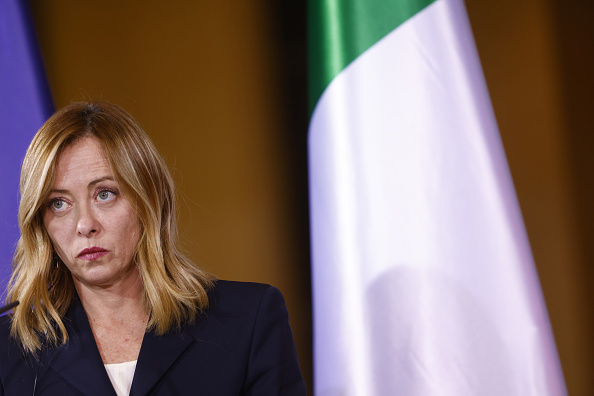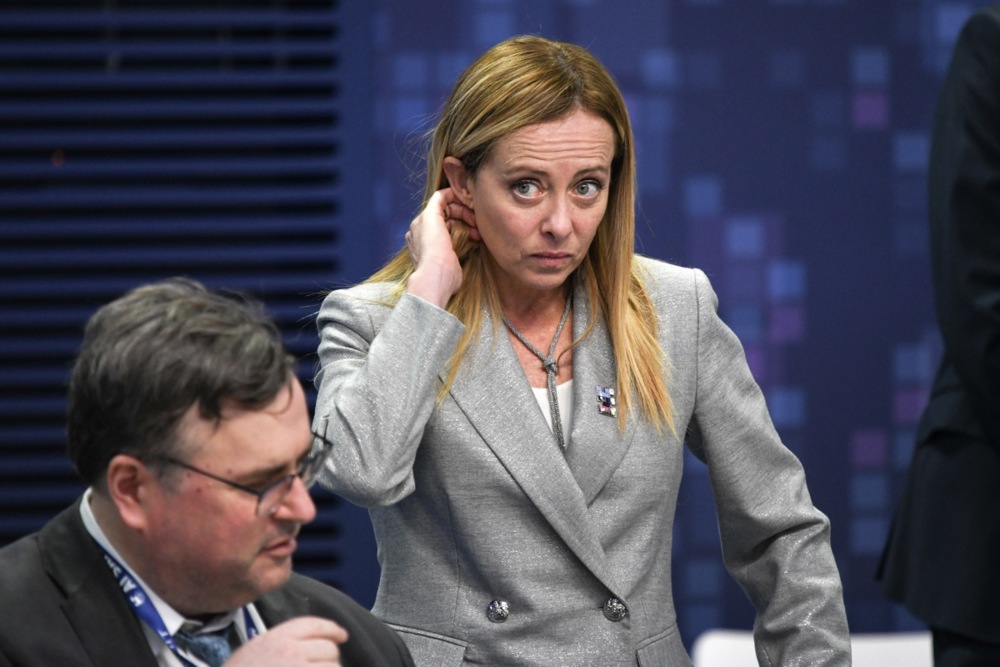After vetoing reforms to the Eurozone bailout fund, Italian Prime Minister Giorgia Meloni has challenged its managing director, Pierre Gramegna, to find a “better use” for the €500 billion European Stability Mechanism (ESM).
But on 19 January, European Commission vice-president Valdis Dombrovskis called on Meloni to change her mind.
“We hope for Italy to make progress on the ESM”, he said, adding “I will be in contact with the competent Italian authorities” to discuss the “next steps forward together”.
By rejecting the reforms, approved by 19 other Eurozone members, Meloni has scuppered plans to develop a euro-area banking union.
Vittorio Fontanesi, a Milan fund manager, told Brussels Signal: “The ESM has long been used as a symbol of decisions taken without electoral consensus by technocratic governments.
“By Meloni’s electorate, it is seen as a weapon of blackmail against Italy to force Greek-style austerity policies and deprive the people of their democratic freedom,” he said.
Created in 2012, the ESM was designed to help countries in financial crisis that were unable to access funding from global markets.
Spanish banks were the first to gain loans via the mechanism in its first year, with Cyprus, Greece, Ireland and Portugal also having received assistance since then.
ESM loans are modelled on IMF policies and generally come with conditions such as tax and financial sector reforms and/or cutting fiscal deficits.
The rise of Eurosceptics, particularly in Italy, has been partly driven by the impact of what are seen as “austerity policies”.
Opponents claim the ESM could force Italy to restructure its large public debts, which could trigger a domestic crisis.
The reforms Meloni rejected would make the ESM a “revolving credit line” for failing banks, especially if the Single Resolution Fund was depleted, it is argued.
Fontanesi said: “Some leading elements of the current parliamentary majority, such as [Senator] Claudio Borghi of the Lega, insist that the so-called ‘bank bailout’ would favour the rescue of non-Italian banks, given the process of recovery and recapitalisation that ours have faced in the last 13 years.”
Many in Brussels hoped Meloni, who has pursued a more pragmatic and conciliatory line towards the EU than had been predicted, would approve the ESM reforms.
In fact, she faced political pressure at home to impose the veto, as dynamics in her three-party coalition increasingly rock her boat.
The parliamentary majority “is facing a moment of great internal confrontation and difficulty in choosing candidates for regional elections and there is a lot of friction between the parties,” Fontanesi said.
Alongside that, both Claudio Borge, of Meloni’s coalition partner Lega, and the party’s leader Matteo Salvini are vocally strongly against the ESM.
“Meloni probably imposed the ‘no’ for the same reason, since Salvini was already campaigning against the instrument, tickling Meloni’s electorate,” Fontanesi suggested.
Meloni and Salvini also face competition ahead of the European elections 2024, which will determine leadership of the Italian Right.
Her party currently polls at 27 per cent against Lega’s nine per cent.
The coalition’s third party, Forza Italia, under a new leadership after the death of Silvio Berlusconi last year, abstained in the parliamentary vote on the ESM.
Meeting the Eurozone fund’s top managers in Rome on January 12, Meloni said the fund “has not been used for a long time” and, instead of the proposed reforms, “possible remedies” to use the money more effectively needed to be considered.
Ireland’s Paschal Donohoe, as President of the Eurogroup, has promised to find “another way forward”, although what that might be remains unclear.





